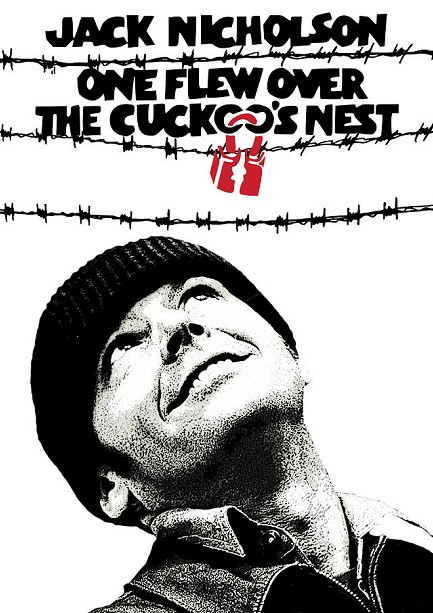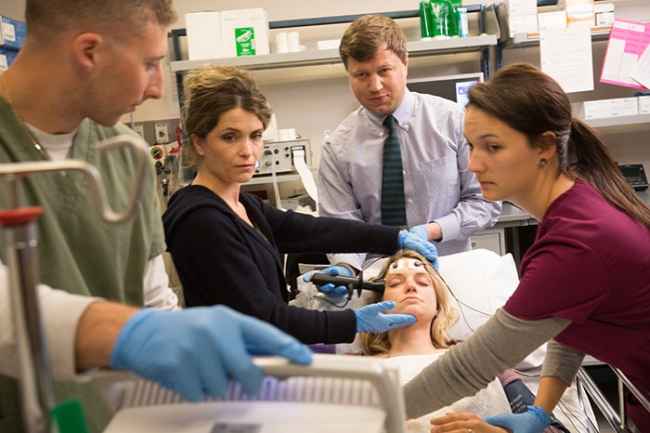I am not sure that I have previously shared this but when I was in college, I worked in a psychiatric ward. I was a psychology major but having to go through statistics pretty much made that impossible. But then working on the psych floor kinda put the nails in the coffin. I had a hard time letting stuff go after my shift. People find themselves in psych wards for a variety of reasons from med stabilization to self harm. But people dealing with serious trauma can also find themselves in a psych ward. And hearing of the trauma was often times too much for me.
Psych floors in hospitals are essentially a temporary stop, while a plan for care is created. My title was Mental Health Technician which is a glorified bouncer. I would check vitals and do bed checks, while assisting with tasks for the nurses. But the exciting part of the gig was when someone needed to be strapped down to a bed, typically in the ER. Police would bring someone in, usually in handcuffs. They would take the cuffs off and wish us luck as they went on their way. Getting a kid into a bed wasn't too tough but sometimes there was someone who was tripping on PCP or drunk and delusional and they were a bit more of a challenge. Especially if they were young and strong. Oh, the stories I could tell...
My issue with working on the floor was seeing people that who had few options. Some were terribly abused by someone and were incredibly broken. Watching families come in and come to terms with the fact that they were unable to help or even care for a loved one was not easy. But there was some really interesting things from working there. Like learning of how terribly maligned shock therapy was.

Back in 70s, a movie came out called One Flew Over the Cuckoo's Nest starring Jack Nicholson. Was very popular and won a bunch of awards. It was the story of a guy that was put into a psychiatric hospital. He games the system and pulls off a bunch of stunts and comes to a rather depressing ending. But it did a massive disservice to the psychiatric field. In fact, there were several but the one I want to discuss is ECT(electroconvulsive therapy), or shock therapy.
The film shows the main character being strapped to a bed and being given shock therapy. His body violently convulses as the electricity rushes through him. Well, that may have been how it was done in the past, but it is no longer accurate and because of the popularity of the film, it's how people see it today.
ECT is often used with severely depressed patients that have not responded with other methods. How exactly does it work? Quite honestly, science can't give us a straight answer how or why it works. But for many people, it does. And it is incredible. As a Mental Health Tech, part of my job was to assist with ECT. I would see people who were seemingly at the end of their rope. The docs had tried just about everything and nothing seemed to help. So ECT was often a Hail Mary pass and it was amazing.
We did ECT two days a week; Tuesdays and Thursdays. People would come in for treatments on those days. I would stand on one side of the patient and someone on the other side to make sure they didnt roll off the bed or something like that. The doc would place some paddles on their head and give them the electricity. Kinda like how the movie portrays except for a very important step; before the doc gives the juice, an anesthesiologist would give some medicine to help the patient go to sleep for a very short period and to relax their muscles. This way, there was no thrashing and no fighting. The patient was asleep for it. The patient would tense up for a few seconds, maybe make a slight fist but then go limp for maybe 20 seconds. They would wake up, sit for a minute or two, get up and on their way out the door.

But this was the cool part, it was like a light switch was flipped. They were often bright and pleasant and talkative. Like, immediately. They had just had a controlled seizure so they were often tired and would go sleep for a bit. But it was really something to see. Sometimes they had some confusion about what day it was or something like that. Sometimes, it took a few sessions before it would work but when it finally kicked in, it was truly incredible to witness.
Look, I get it. The entire idea can be scary and the movie does not help. But that is not how it is. Perhaps it was once upon a time. In fact, I am sure it was. But dental procedures used to be done without anesthesia but we have made some advances there, too.
My point to this one is that if you are being presented with this as an option, give it some serious thought. I am not a doctor, I am just sharing my perspective as a literal bystander. And yes, there are possible side effects and all that crap. But sometimes, you need more help than therapy or antidepressants. And again, if someone is suggesting you need to go get coffee or pray or get out of the house, as well intentioned as that may be, they are wrong. You cannot do this alone. You cannot pray away diabetes and you cannot sit in Starbucks, waiting for cancer to leave your body.
Just don't give up. Keep fighting. There are better days ahead. I promise you that. Don't make any decisions based on an old and very outdated movie. If you want to see a good Jack Nicholson movie, check out About Schmidt, one of his most underrated films!
No comments:
Post a Comment